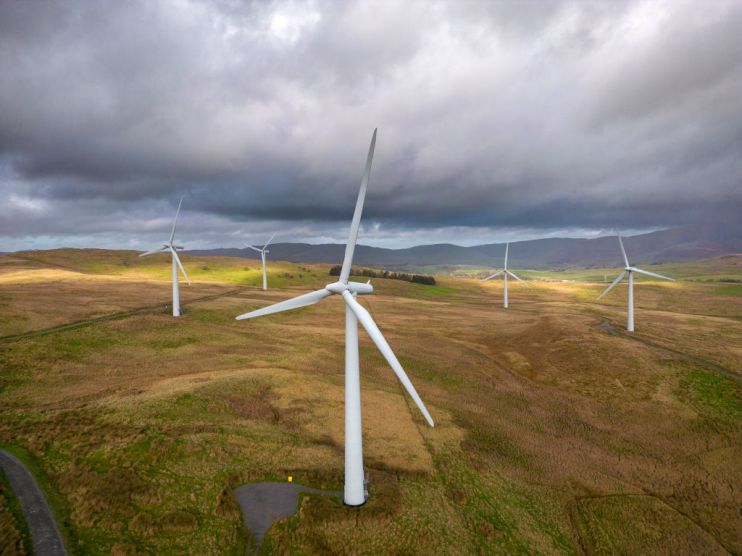UK government’s onshore wind snub faces legal threats

The government may face a legal challenge over its “failure” to define onshore wind development in a scheme that would fast-track applications.
Last week the UK government published its revised policy on energy infrastructure, but ministers “failed” to define onshore wind developments as Nationally Significant Infrastructure Projects.
If the government had defined it, it would have allowed applications for new onshore wind projects to be fast-tracked through the planning system.
The legal threat was issued by environment group Good Law Project who are represented by claimant law firm Leigh Day.
Leigh Day has sent a pre-action letter to the government, and added if they received an “unsatisfactory response”, then it will advise on a claim for judicial review.
Good Law Project wants to force ministers “to unleash the potential of onshore wind”.
It focuses on the UK government’s failure to give “reasons” under section 5 of the Planning Act 2008 for how its exclusion of onshore wind is consistent with a policy of meeting the Net Zero Target.
This comes after a a recommendation by National Infrastructure Commission that “onshore wind should be included in the revised energy National Policy Statement and brought back within the scope of the Planning Act 2008”.
Last week, Scottish Power’s chief executive Keith Anderson told a Parliamentary Committee that he is “not proposing, planning or looking at developing any onshore wind farms in England” as it is “godforsaken”.
Commenting on the legal threat, Emma Dearnaley, legal director of Good Law Project, said: “This government has been stubbornly refusing to back one of the cheapest tools at our disposal to generate renewable energy. Instead, in the midst of a climate crisis, ministers are scandalously focusing their efforts on keeping the fossil fuel industry thriving for decades to come.”
Senior associate at Leigh Day, Rowan Smith added:” The Secretary of State is under a legal duty to explain how the exclusion of onshore winder is compatible its Net Zero policy, yet there has been a complete failure to do so.”
A spokesperson for the Department for Energy Security and Net Zero said:“The UK has a world leading renewables sector – home to the five largest operational wind farms in the world and accounting for over 40 per cent of our electricity compared to 7 per cent in 2010.”
“Since 2014, our renewables auction rounds have contracted 30GW capacity across all technologies, including onshore and offshore wind, bolstering our energy security and cementing renewables as a British success story.
“The streamlined National Planning Policy ensures councils can respond more flexibly to the views of their local communities when they wish to host onshore wind by looking at the views of the whole community, rather than a small minority, when considering a planning application,” the added.
This story was updated to include the comment from the government.